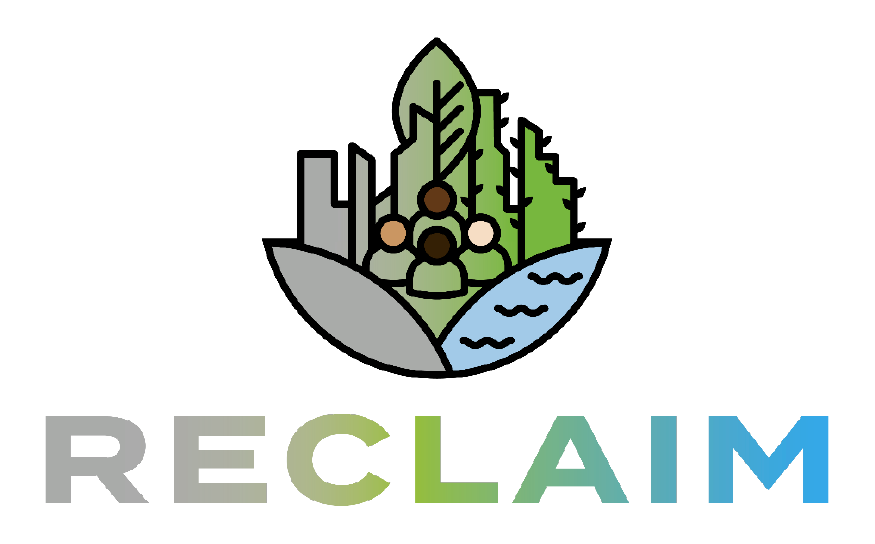The value of green space for health and well-being
Photo of College Park, location of the Green Infrastructure visit
The focus of this workshop on the 26th February was any green and blue infrastructure in towns and cities. It was organised in order to build on insights gained in our previous RECLAIM Network Plus funded project that addressed trees and wildflower meadows in the deprived coastal town of Rhyl, North Wales. The purpose of the workshop was to share this experience whilst opening up the scope more widely to include (and compare with) further GBGI types that are of interest to councils and communities. It explored the needs, priorities, perceptions and preferences of stakeholders including Local Council officers and facilitators of community initiatives, and to discuss these alongside relevant academic expertise.
Workshop at Pontio Arts and Innovation Centre, Bangor University
Twenty-eight participants attended the workshop. Academic representation included UK Centre for Ecology & Hydrology, Bangor University, Wrexham University. Public sector included Betsi Cadwaladr University Health Board, Cyngor Gwynedd Council, Denbighshire County Council. Community groups included GwyrddNi, Ffrindiau Pwllheli, Cwlwm Seiriol, Bwyd Bendigedig y Felinheli and members of the public.
Our guiding question for the day
Q: What do people across various levels of experience think about managing greenspace on a local council level, through the lens of health and wellbeing?
· What are your challenges?
· Where do we want to be?
· How can we get there?
The morning session began with a series of presentations on the topic, with opening talk delivered by Professor Laurence Jones from RECLAIM Network Plus about the network’s activities. Dr Sofie Roberts from Bangor University then spoke about the findings of the RECLAIM Network Plus funded Rhyl study, followed by seven speakers from across academia, health sector, local authorities and community groups. After these talks attendees worked in groups to discuss the guiding question and the three key areas. The discussion can be grouped into the following key themes:
Communities; Access to greenspace; Communication, knowledge sharing and outreach; Responsibility; Co-creation; Perceptions; Ownership; Conflict.
After lunch there was opportunity to reflect on the morning’s session by taking part in a guided walk around Bangor University’s College Park to consider urban GBGI within nature. The afternoon plenary provided time to come together to further discuss the topics raised and identify next steps for future collaboration.
The workshop enabled us to bring voices from different sectors and experience together, to discuss the important topic of greenspace and health and well-being. Feedback about the event was very positive with many attendees interested in working with us on future projects – with bid ideas in progress, we hope we will be able to provide a positive update in the coming months!
This work has been supported by the UKRI-funded RECLAIM Network Plus grant (EP/W034034/1).
By Dr Sofie Roberts, Bangor University



